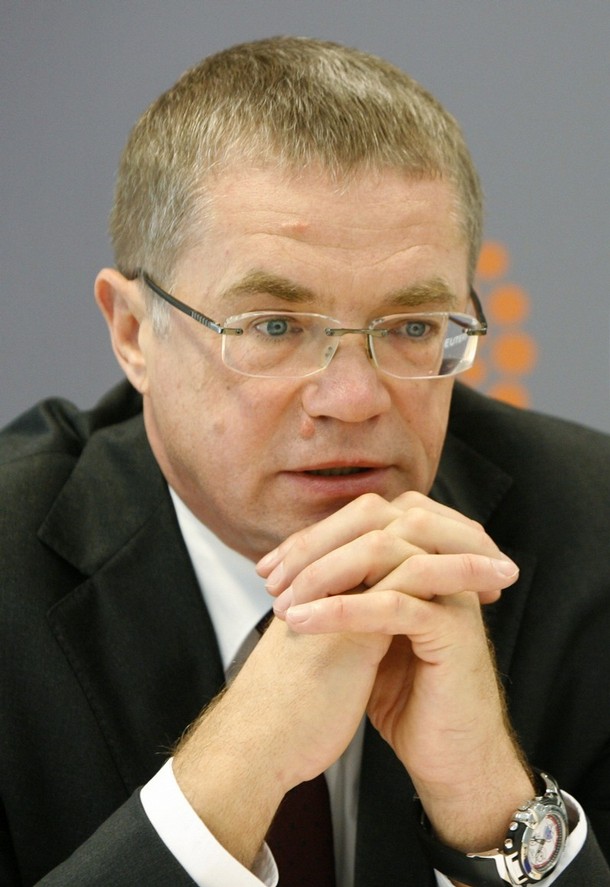
Liberalization of the Turkish Energy Market Sparks Russian and European Interest
Publication: Eurasia Daily Monitor Volume: 6 Issue: 176
By:

Gazprom’s Deputy CEO Alexander Medvedev has outlined the company’s plans for expanding its investments in the Turkish energy sector, especially natural gas distribution and electricity production markets (Referans, September 23). The growing Russian as well as European interest reflects its desire to obtain an advantageous position in anticipation of the further liberalization of the Turkish energy sector.
Gazprom’s advances build on the groundwork laid during Russian Prime Minister Vladimir Putin’s visit to Turkey in early August during which he signed landmark energy deals with his Turkish counterpart Recep Tayyip Erdogan (EDM, August 7). Gazprom also signed a protocol with the Turkish energy company, Aksa Energy, for importing and distributing Russian gas as well as building a liquefied natural gas (LNG) terminal in Turkey. Aksa is the largest natural gas distributor in Turkey and has also invested in power plants. Mehmet Kazanci, the Chairman of Kazanci Holding, which also owns Aksa, said that they were still working on the details of their partnership model with Gazprom, which might involve Gazprom acquiring shares in Aksa, or the two companies forming a joint enterprise. However, he expressed his hope that an agreement might be reached soon (Hurriyet, Zaman, August 21).
Meanwhile, it was recently announced that Gazprom would raise its shares in another gas distributor, Bosphorus Gas, from its current level of 40 percent to 71 percent. Gazprom controls these shares through its German subsidiaries, Germania ZMB GmbH. The Turkish media has speculated that Gazprom might use Bosphorus Gas, which holds a license to import gas, as a stepping stone to penetrate into the Turkish energy market if the sale is approved (Zaman, August 20). Other projects in which Gazprom has expressed interest are the privatization of gas distribution companies in Istanbul and Ankara and the construction of underground gas storage in Salt Lake (Sabah, August 15).
Commenting on the progress of the talks with Aksa, Medvedev added that the protocols envisaged cooperation only, and did not necessarily require the two companies to form joint enterprises. In that context, Medvedev revealed Gazprom’s willingness to sell gas directly to Aksa and other private companies. However, this option for selling gas to private companies will become possible only after the current Turkish regulations are modified.
Medvedev also provided details about Gazprom’s negotiations with Botas, the Turkish state-owned gas company, over Turkish gas purchases from Russia. He described Turkey as Russia’s second largest customer after Germany, noting that he expected Turkish imports to reach 23 billion cubic meters (bcm) by the end of the year. He added that the parties were discussing volume discount in Turkey’s gas imports from Russia which is conducted on "purchase or pay" conditions, though no official negotiations have started on this subject.
Since Botas over-contracted gas imports from Russia and Iran and those long-term agreements involve "purchase or pay" clauses, Turkey has been facing difficulties in consuming the total volume of imports in its domestic market. To reduce this burden, Botas has promoted the notion of switching to gas-powered power plants working, operated by private companies. However, the declining demand for electricity due to the contraction in the Turkish economy has generated an excess amount of gas supply (www.haberturk.com, September 9). Therefore, Ankara has requested that Moscow should relax these "purchase or pay" clauses.
Medvedev also commented on the joint gas transportation projects. He referred to South Stream, noting that Gazprom was waiting for the Turkish authorities to grant the necessary permission to allow the feasibility work to commence on the construction of the pipeline planned to run underneath the Black Sea. During Putin’s visit to Ankara last month, the Turkish government announced its decision to support the South Stream project. Medvedev also referred to another joint project: Blue Stream 2. He noted that although a consensus on Blue Stream 2 was reached at the political level, this project was still in its initial phases and that the two sides would soon commence detailed negotiations. Asked about whether Gazprom might be interested in buying shares in Botas if it were privatized, Medvedev responded very cautiously. Although he noted that it was too early to talk about this issue, he underscored Gazprom’s criteria in such foreign investments: "First of all, we will seek to obtain a share of the capital that will grant us the right of decision making."
The development that set the background for the recent upsurge in foreign interest in the Turkish energy market is the prospect for the further liberalization of the energy sector. The government is working on changes to its energy regulations, and will introduce a new law on renewable energy sources, which will facilitate the access of foreign companies to the Turkish market. A related development concerns Turkey joining the Energy Community Treaty (ECT), a multilateral framework intended to harmonize the regulations of countries bordering the E.U. with the energy acquis of the E.U., which went into force in 2006.
As part of the pre-accession process, the E.U. expects Turkey to sign the ECT, which it currently attends as an observer. In response to the delays encountered over the Turkish-E.U. membership negotiations, especially the Greek Cypriot veto on the opening of the energy chapter, Ankara has refused to join the ECT. Turkey’s stance on the ECT became one of the issues that stalled the negotiations between the E.U. and Turkey over the E.U.-backed Nabucco pipeline.
Following the signing of the Nabucco inter-governmental agreement in Ankara (EDM, July 14), Turkey also changed its attitude toward the ECT. On September 9, a Turkish delegation led by Yusuf Yazar, the Deputy Under Secretary for Energy, met with a European Commission negotiating team. In the first round of the negotiations, both delegations discussed the progress in reforming the Turkish energy sector and the related legislative changes, especially in the electricity market (www.europa.eu, September 10).
Gazprom’s ambitious portfolio in the Turkish energy market mirrors the growing interest of European businesses. According to recent reports, many European companies are keen to enter into the Turkish energy sector, especially in natural gas, electricity, and renewable energy (Referans, September 15). Ironically, the further liberalization of the Turkish energy market, which is partly induced by the E.U., might pave the way for Gazprom’s domination of Turkey’s downstream market.




